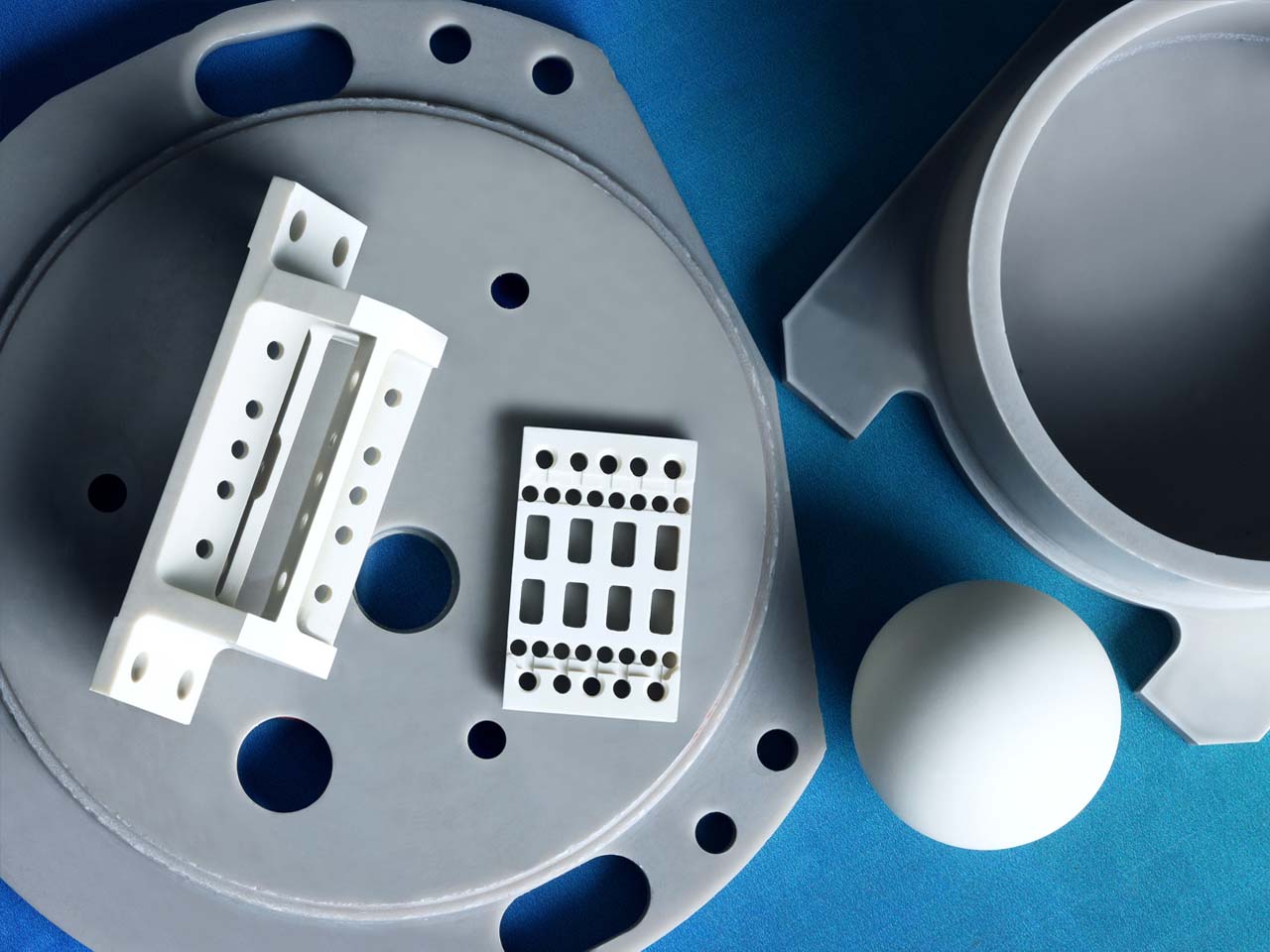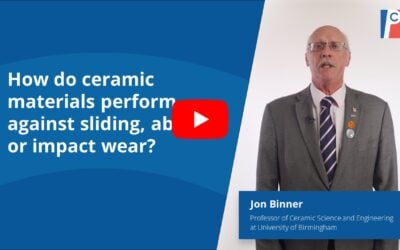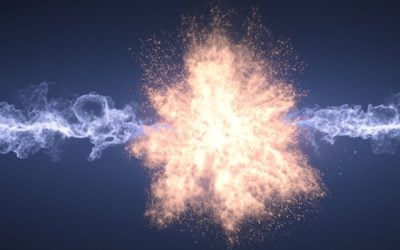A Simple Guide to Advanced Ceramics …
Advanced or technical ceramics are very broad terms that encompass many different types of ceramics with vastly differing properties. To make things easier for you to choose the right material for your particular application, we have put together this simple guide which gives a general idea of the properties of our principal technical ceramics relative to each other.
If you require further technical information about any specific technical ceramic in our portfolio, please visit the relative page/s on our website.
Machinable Ceramics
Machinable ceramics are fully dense ceramics. They require no post heat treatment and can be machined with ordinary metalworking tools. Once machined, they need no further grinding or firing and are generally ready to use in their particular application.
Machinable ceramics are the perfect choice if rapid turn-round is required. They also provide the ideal basis for prototyping before moving up to harder materials. Typically the mechanical properties of machinable ceramics tend to be lower than that of non-machinable ceramics. They also tend to be much cheaper for small quantity orders.
The principal machinable ceramics we currently offer include:
- Macor® is an outstanding engineering material and is machinable with ordinary metalworking tools. Macor has a high use temperature (800°C continuous to 1,000°C peak). It has a low thermal conductivity and is a useful high temperature insulator as well as an excellent electrical insulator. It is strong and rigid and, unlike high temperature plastics, will not creep or deform. Macor is also radiation resistant.
- Shapal Hi-M Soft™ is a new type of machinable ceramic and combines a high thermal conductivity with a high mechanical strength with bending strengths of 30 kg/m. Shapal Hi-M Soft, in particular, has an excellent sealing ability to vacuum. It also has good heat resistance and an extremely low coefficient of thermal expansion.
- Boron Nitride is an advanced synthetic ceramic material available in powder, solid, liquid and aerosol spray forms. Its unique properties – from high heat capacity and outstanding thermal conductivity to superior dielectric strength – make Boron Nitride a truly outstanding material. In its solid form, Boron Nitride can easily be machined to close tolerances in virtually any shape.
Macor® v Shapal Hi-M Soft™
Shapal Hi-M Soft has significantly stronger mechanical properties than Macor. However, this may not be an issue if your application does not require the material to withstand high mechanical loads. Macor is one of our most frequently used ceramics and is typically the most cost effective material for general technical ceramic applications. If you need more help in making your choice, please contact us.
In its solid form, Boron Nitride in is also a machinable ceramic. However, it has relatively poor mechanical properties when compared to Macor and Shapal. Boron Nitride is typically used because it has a very specific set of thermal properties that make it highly desirable when high temperature capabilities are required.
Non-Machinable Ceramics
No-machinable ceramics are those that once fired can only be machined using diamond grinding methods or other specialist machining practices. Non-machinable ceramics offer a more extensive range of properties but require specialist tooling and longer lead times. This said, they can often be more cost effective when large quantities or very high performance is required.
The principal non-machinable ceramics we currently offer include …
- Alumina (Aluminium Oxide)
- Aluminium Nitride
- Boron Carbide
- Silicon Carbide
- Silicon Nitride
- Zirconia (Zirconium Oxide)


Full application and technical details for each of these can be found in the Materials area of our website..
Highlighted Materials
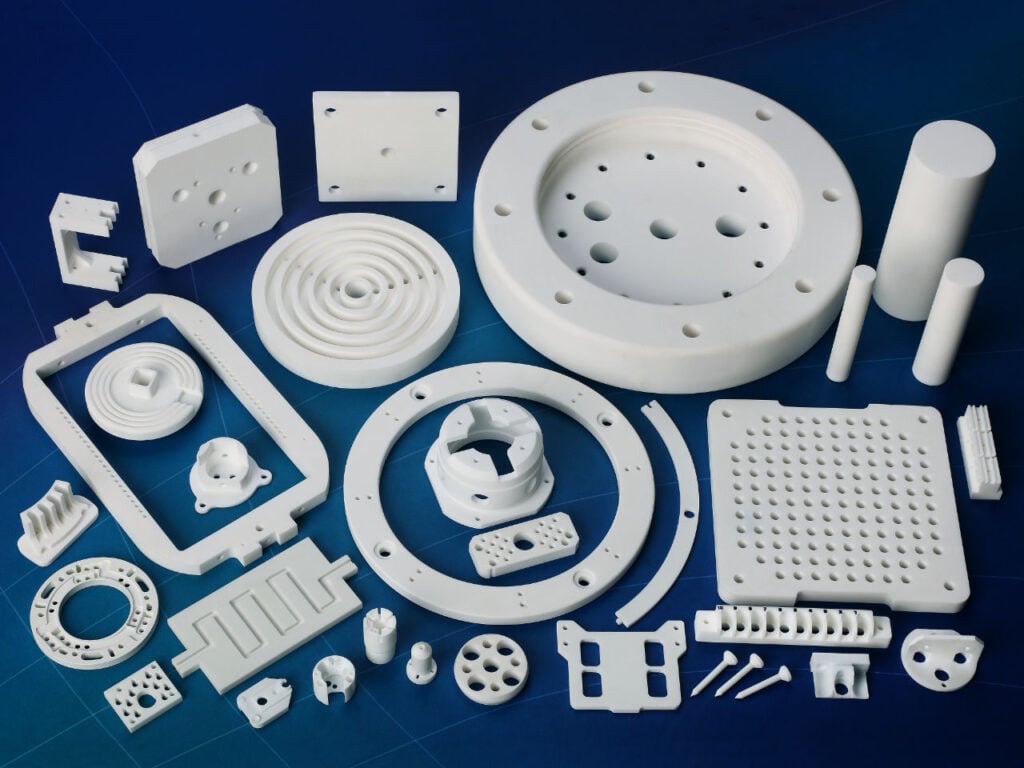
Macor®
Machinable Glass Ceramic
Macor is a hybrid glass-ceramic with the machinability of a metal, and the performance of an advanced technical ceramic. Macor is an excellent thermal and electrical insulator.
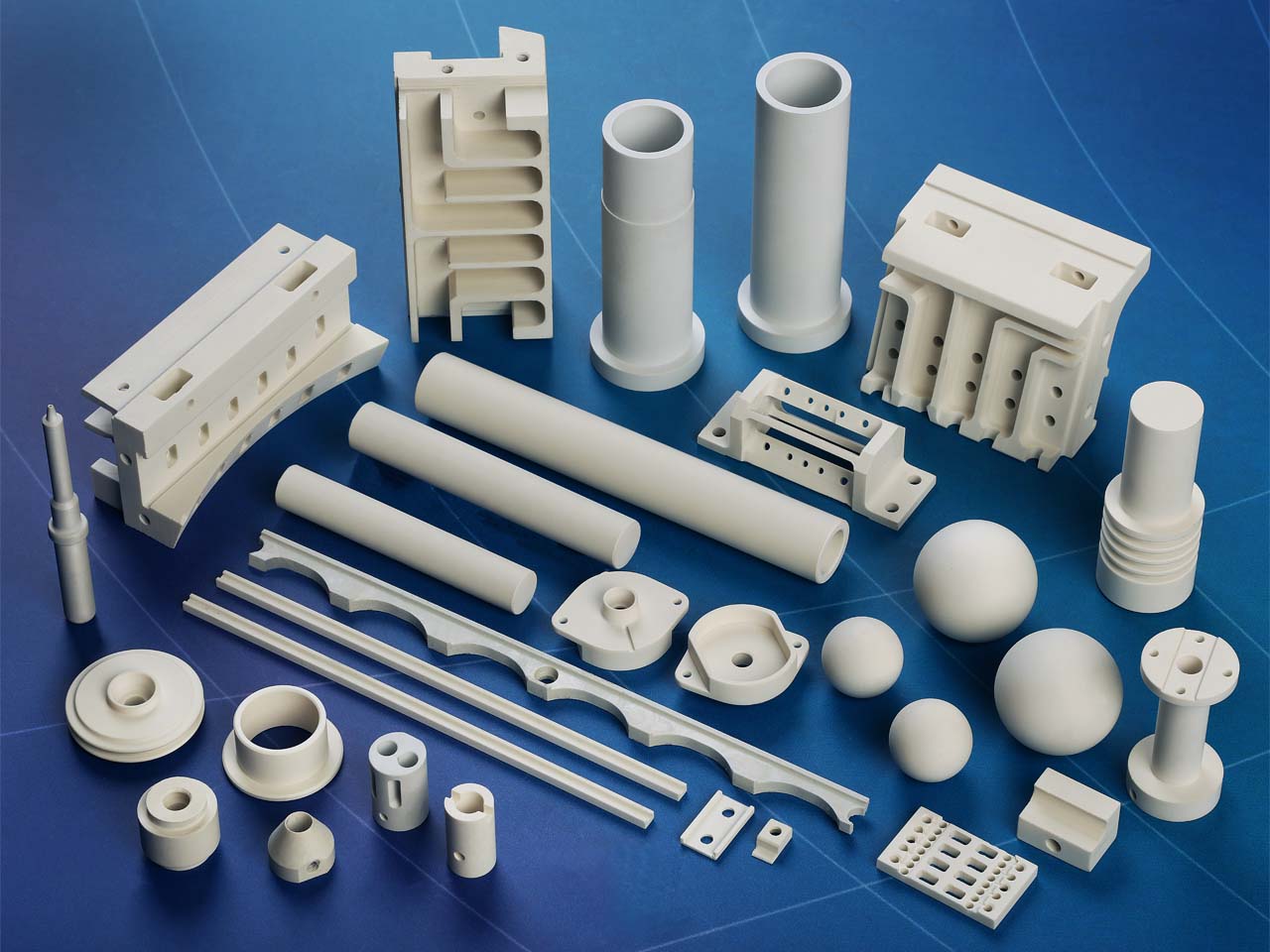
Shapal Hi M Soft™
Machinable AlN
Shapal Hi M Soft is a hybrid type of machinable Aluminum Nitride (AlN) ceramic that offers high mechanical strength, electrical insulation, and thermal conductivity.
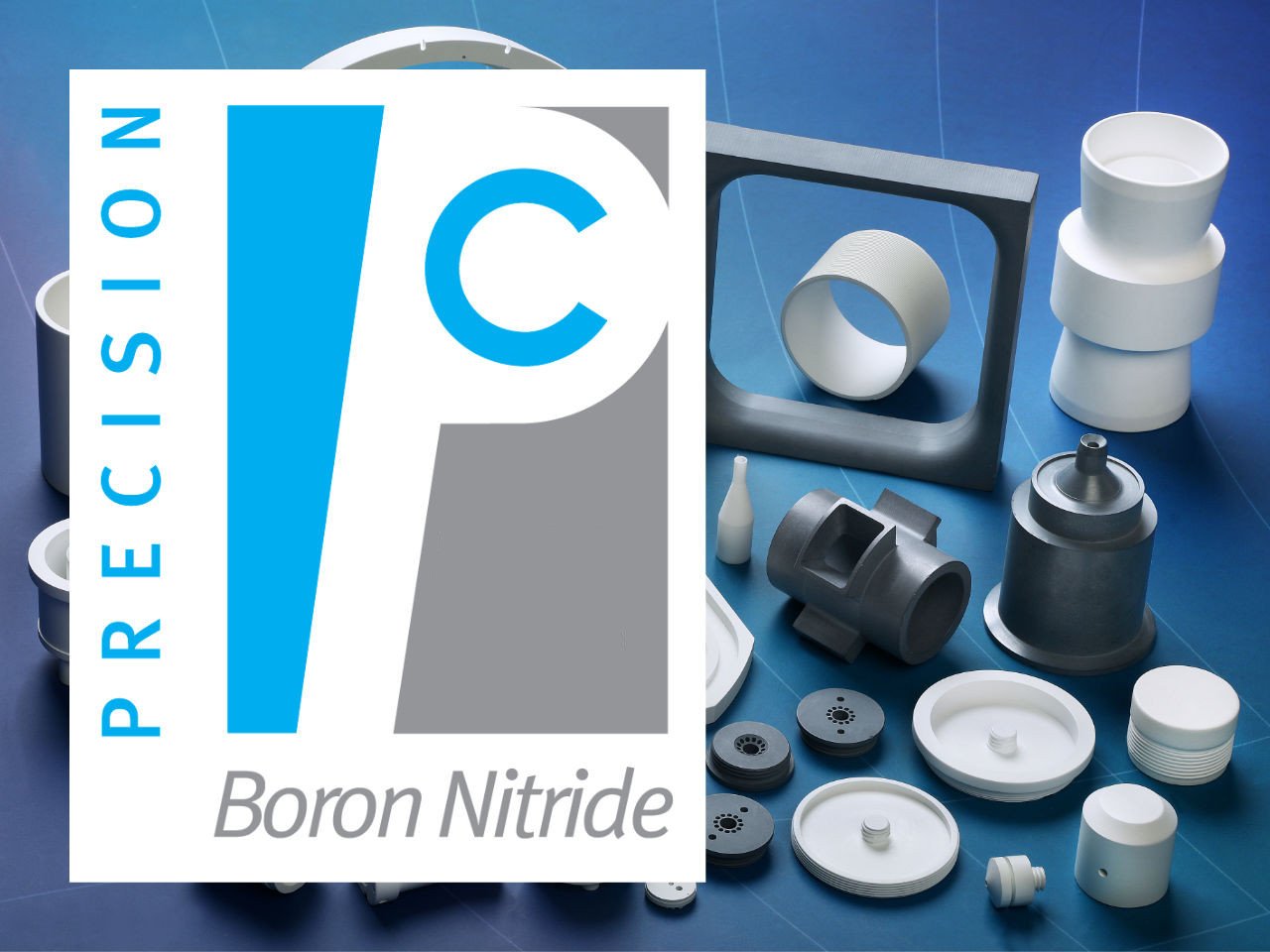
Boron Nitride
Boron Nitride Grades
Boron Nitride (BN) is an advanced synthetic ceramic material available in solid and powder form. It has outstanding thermal conductivity and is easy to machine.

